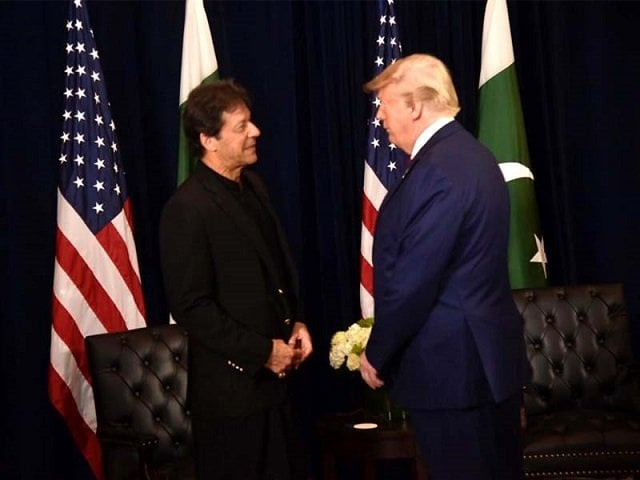Is US trying to sway Pakistan away from China?
It is now an open secret that the US is opposed to CPEC

PHOTO: PID
When Imran undertook a maiden visit to the White House in July last year, it was in reality an acknowledgment of Pakistan’s positive role for the Afghan peace efforts. The headline of that interaction between the two was Trump’s unexpected offer seeking mediation between Pakistan and India over the longstanding Kashmir dispute. This was certainly music to Pakistani ears but sent alarm bells in India, which always maintains that Kashmir is a bilateral dispute and there is no question of a third-party mediation. Trump, later, relented on his offer by reverting to the Washington’s stated position that Kashmir is a bilateral dispute and both sides must find a way out. The reason, of course, was that Trump, who also developed personal relationship with Indian Prime Minister Narendra Modi, could not afford antagonising New Delhi because of strategic and economic interests.
But merely two months later, when Trump met Imran on the sidelines of the UN General Assembly session in New York in September, he again raised the Kashmir issue. But, India nevertheless maintained its stated position despite tremendous pressure in the wake of its unilateral move to do away with the special status of the disputed territory. Practically, despite Trump’s repeated offers of mediation, there was no change on the ground. Yet, at the recent meeting in Davos, Trump himself once again brought up the Kashmir issue and said he would be discussing this and other subjects with Imran. The question remains: why does Mr Trump, time and again, bring this issue knowing full well that India would never like it and also given the fact that his latest reference came just days before his maiden visit to India? Is Trump too naive or does he understand the game? It seems that he knows the game. He realises that referring to Kashmir always sends a good message to Pakistan. The question then is: what he wants in return? Of course Pakistan’s help for the Afghan peace deal.
The other but less talked about subject is CPEC. The Trump administration officials now often talk of trade ties with Pakistan. Trump mentioned the same during his meeting with the PM. Is the US trying to sway Pakistan away from CPEC by offering increased trade ties in return? It is now an open secret that the US is opposed to CPEC. Chief US diplomat for South Asia Ambassador Alice Wells during her recent visit to Islamabad once against questioned the efficacy of the multibillion dollar project for Pakistan. She said CPEC is a debt trap and would damage Pakistan’s economy in the long run. As expected, China gave a stinging reply and made it clear that while Beijing had no issue with improved ties between Pakistan and the US, it would never allow interference in CPEC. It appears that this is not just a message for the US but also for Pakistan. This means Pakistan is facing a real diplomatic test. It considers CPEC a game changer, yet does not want to antagonise the US. Can it maintain that delicate balance?
Published in The Express Tribune, January 27th, 2020.
Like Opinion & Editorial on Facebook, follow @ETOpEd on Twitter to receive all updates on all our daily pieces.














COMMENTS
Comments are moderated and generally will be posted if they are on-topic and not abusive.
For more information, please see our Comments FAQ